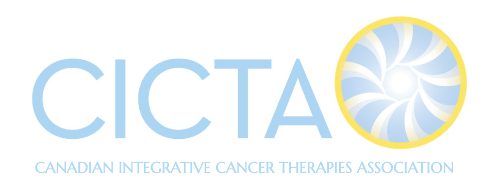Dr. Jack He, MD, MSc, RAc
The medical modality of Integrative Medicine (or Integrated Medicine as it is referred to in the United Kingdom) has been proposed formally at the 51st WHO World Health Assembly in 1998 and been regarded as “the new medical perspectives in the 21st century”. At the 59th World Health Assembly in 2006, Prince Charles, the heir to the British throne, called for integrated medicine and advocated the patients to be offered the best of integrative conventional and complementary medicine (e.g. Traditional Chinese Medicine). To date, the emerging of integrated medicine will lead to cancer patients’ well-being possible and practical. Theoretically, in the viewpoint of integrative medicine, the occurrence and development of cancer is due to deficiency of life’s innate healing processes which leads to a breakage of dynamic balance between oncogene and anti-oncogene and unregulated gene expression as well as linkage disequilibrium of gene steady state. Intervention of cancer, ethically unharmful to the patients other than invasive and aggressive to the body, has become mission possible that might capable of restoring self healing forces and reconstituting gene homeostatic state of holism.
In the past century battle against cancer, lessons have been learned and research-proven. Substantially, the treatment protocols advancement is crucial important. However, the rational therapy should be creative and innovative other than ” shut mind” conventional evidence-based treatments for specific disease interventions. The reductionistic and mechanistic treatment, for example, surgery and radiation therapy, may reduce and/or remove pathogenic factors of diseases while sacrifice humanistic nature of healing and worsen the genuine homeostatic gene. The perception is “Therapy or Torture: Cure the ailment, torture the body?” and the way of thinking likes “ Not Seeing the Forest for the Trees“. The history of fighting against cancer has been advised that advanced therapeutics and medical technologies demonstrated an overall survival advantage including a few percentage significant improvements in 5-year survival rate. Unfortunately, failure of treatment is most likely to be pessimistic attitudes towards patients so far. WHO is developing the Global WHO Cancer Control Strategy at the 58th World Health Assembly in May 2005, that includes implementation of cancer prevention, early detection and accurate diagnosis of cancer and adequate treatment. A systematic philosophy and universal understanding of different stage of cancer should be recognized. Standardized and individualized integrative cancer therapy will be established by means of implementing latest evidence-interventions and aiming to improve quality of life of patients with cancer accordingly.
The establishment of integrative cancer therapy is a systematic programmed which requires medical doctors, and healthcare professionals with advanced knowledge, hands-on expertise and good practice bioethics as well as extensive medical communication skills and humanism. So an accurate integrative cancer treatment regiment can be made. Following the cancer treatment and management resolution, all oncologist and experts should translate the knowledge to practice based on the following 6 principles.
Subject perspective: cancer is localized disease that can affect any part of the body. To remove or arrest or destroy cancer while minimize the damage of health by means of enhancing immunity and restoring self healing ability.
Full-spectrum service: Cancer cells can be of growth, proliferation and metastasis. Medical professionals are committed to offering individualized plan of treatment, not only clinical excellence, but also supporting patients; rehabilitation.
Time-effective: Due to the nature of cancer cells proliferation exponentially, design of effective cancer treatment regimens turn to race against time for fighting against cancer.
Self-independent: To enhance human active immunity and avoid immunotherapy-dependent may be responsible for rehabilitation and improvement of self healing process.
Social perspective: Concerning about the implication and impact of cancer disease, it becomes not only medical problems but also social issues. So social care is essential for cancer treatment and management.
Evolutionary perspective: Cancer appears intimately tied up with the development of multicellular organisms. It’s a physiological condition due to “nature-nurture” mismatch. The evolutionary approach, however, may not only illuminate how a single mutant cell might develop a clone that results in cancer but also throw light on new potent therapeutic way to “tame” cancer cell back to normal behavior.
So far, the Integrative Medicine has not been well establish. Currently, only a few treatment options and medicines have been involved comprehensive treatment plans in terms of “integrative medication”. ALL the proposed or practiced treatments and healing techniques need to be revealed rigorously and further to be proven, complemented, developed and established in properly controlled good clinical trials. Nevertheless, the integrative medicine of today should be a promising approach for cancer treatment and management.

